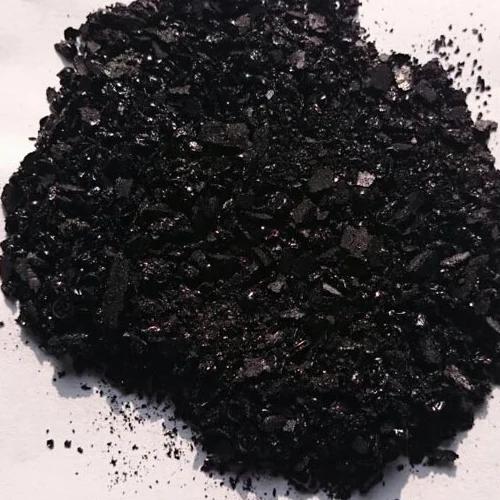natural indigo dye products
The Revival of Natural Indigo Dye Products
Indigo dye, known for its rich blue hue, has been a significant part of human history for centuries. Derived from the leaves of the indigo plant, this natural dye has made its mark on textiles across cultures and continents. Today, there is a revival of natural indigo dye products, driven by a growing interest in sustainable practices, traditional techniques, and eco-conscious fashion.
Historically, indigo was used in ancient civilizations, from the Egyptians to the Maya, showcasing its versatility and cultural importance. The process of extracting indigo dye is intricate and labor-intensive, requiring specific fermentation methods to convert the plant’s precursor, indican, into dye. This traditional method not only connects artisans to their heritage but also emphasizes the craftsmanship involved in producing textiles that carry environmental and social significance.
In recent years, awareness of the environmental impacts of synthetic dyes and fast fashion has prompted consumers to seek out alternatives. Synthetic dyes contribute significantly to pollution, with toxic runoff from dyeing processes contaminating waterways. This has led to a resurgence in the popularity of natural dyes, with indigo at the forefront. Natural indigo dye products are not only biodegradable but also often produced using low-impact methods, making them a more sustainable choice.
Artisans and brands that focus on natural indigo dye techniques are taking steps to educate consumers about the benefits of their products. They emphasize the unique characteristics of natural indigo, which often produces varied shades of blue depending on factors such as the material, dyeing method, and even the climate in which the indigo plants were grown. This unique quality appeals to consumers looking for individuality in their clothing and textiles.
natural indigo dye products

One of the remarkable aspects of natural indigo is its rich cultural relevance. In many regions, such as West Africa and Japan, indigo dyeing is steeped in tradition and community. Artisans often engage in cooperative practices, supporting one another in sustainable farming and dyeing processes. By purchasing natural indigo products, consumers contribute to these communities, fostering not only environmental sustainability but also economic empowerment.
Moreover, the fashion industry is beginning to recognize the value of storytelling in their products. Consumers are increasingly interested in understanding the origins of their clothing and the processes behind them. Natural indigo products offer a narrative that connects the wearer to the soil, the artisans, and the history of the dye itself. Brands that emphasize storytelling, heritage, and sustainability often find a receptive audience among environmentally-conscious shoppers.
The versatility of natural indigo goes beyond just clothing. It can be found in home décor items like curtains, cushions, and upholstery fabrics, bringing a touch of nature inside. Furthermore, artisans and designers are exploring innovative ways to incorporate indigo into contemporary designs, appealing to a diverse range of tastes while respecting traditional dyeing techniques.
As the demand for natural indigo dye products continues to grow, so too does the need for education and preservation of natural dyeing techniques. Workshops and courses are being offered to teach new generations about the traditional art of indigo dyeing, ensuring that these skills are not lost to time. This revival is crucial not just for cultural heritage but also for fostering a more sustainable future in the textile industry.
In conclusion, natural indigo dye products represent more than just a fashion statement; they signify a shift towards sustainability, a connection to cultural heritage, and an appreciation for craftsmanship. As consumers become more conscious of their choices, embracing the beauty and tradition of natural indigo dye is a step toward a more sustainable and ethically responsible future in fashion and textiles. Through supporting artisans and sustainable practices, we can help preserve this ancient art form while enjoying the unique beauty it brings to our lives.
-
Sulphur Black Dyes in Daily Use
NewsMay.07,2025
-
Indigo Dyeing for Daily Life
NewsMay.07,2025
-
Indigo Dye Production and Its Growing Demand
NewsMay.07,2025
-
Color That Lasts
NewsMay.07,2025
-
Bromo Indigo for Modern Use
NewsMay.07,2025
-
Blue From Nature
NewsMay.07,2025
-
The Timeless Color in Fashion and Textiles
NewsApr.10,2025

Sulphur Black
1.Name: sulphur black; Sulfur Black; Sulphur Black 1;
2.Structure formula:
3.Molecule formula: C6H4N2O5
4.CAS No.: 1326-82-5
5.HS code: 32041911
6.Product specification:Appearance:black phosphorus flakes; black liquid

Bromo Indigo; Vat Bromo-Indigo; C.I.Vat Blue 5
1.Name: Bromo indigo; Vat bromo-indigo; C.I.Vat blue 5;
2.Structure formula:
3.Molecule formula: C16H6Br4N2O2
4.CAS No.: 2475-31-2
5.HS code: 3204151000 6.Major usage and instruction: Be mainly used to dye cotton fabrics.

Indigo Blue Vat Blue
1.Name: indigo blue,vat blue 1,
2.Structure formula:
3.Molecule formula: C16H10N2O2
4.. CAS No.: 482-89-3
5.Molecule weight: 262.62
6.HS code: 3204151000
7.Major usage and instruction: Be mainly used to dye cotton fabrics.

